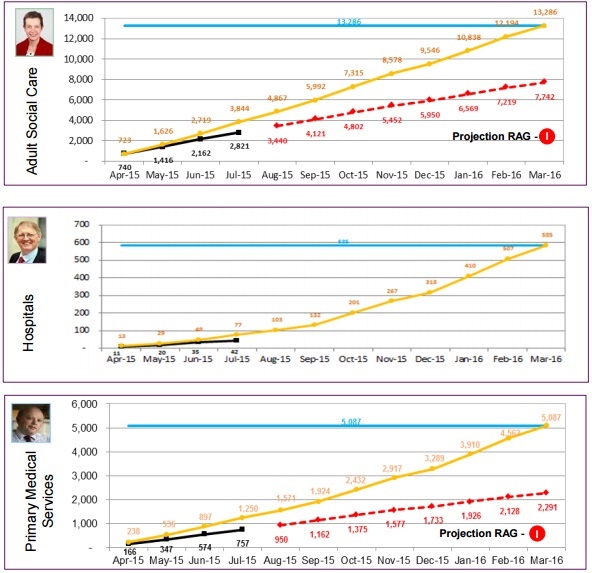24.09.15
CQC performance may be ‘unrecoverable’, recruitment slumps
The CQC will not be able to recover its performance levels if it continues to fall behind inspection targets and productivity fails to improve soon.
The regulator has missed all targets laid out in its inspection programme since April 2015. In papers presented at its board meeting yesterday, the CQC said its performance “would not be recoverable” if poor productivity trends continue.
It only hit 73% of July’s target for adult social care inspections, putting it on track to carry out only 58% of programme inspections against the 2015-16 target.
Only 61% of the intended target for primary medical service inspections was accomplished, which translates to a projection of less than half of what the regulator set out to achieve in this financial year.
And, also in July, it only inspected 44 hospitals instead of the intended 77 outlined in its programme.
 Click on the image to enlarge it.
Click on the image to enlarge it.
After pushing back its intended deadline for inspecting all adult social care locations to September 2016, the regulator has now admitted that original plans to increase inspection levels based on wide staff recruitment and increased productivity were “optimistic”.
There was less recruitment than expected – there are still 145 vacant roles within its hospitals team, for example – and productivity levels slumped below predictions.
To address issues, chief executive David Behan said further analysis would be carried out of underlying management information data to better understand why the regulator is falling behind. Results will be factored into planning for the remainder of this financial year and inform 2016-17 targets.
Each deputy chief inspector and head of inspection will also develop a bespoke plan to address regional slumps in productivity.
The regulator will also have to identify funding to cover delays and changes to plans by searching the current forecast for projected underspend.
Plans will be put in place to work overtime in order to carry out additional inspections within teams and across other teams where there is a significant shortfall.